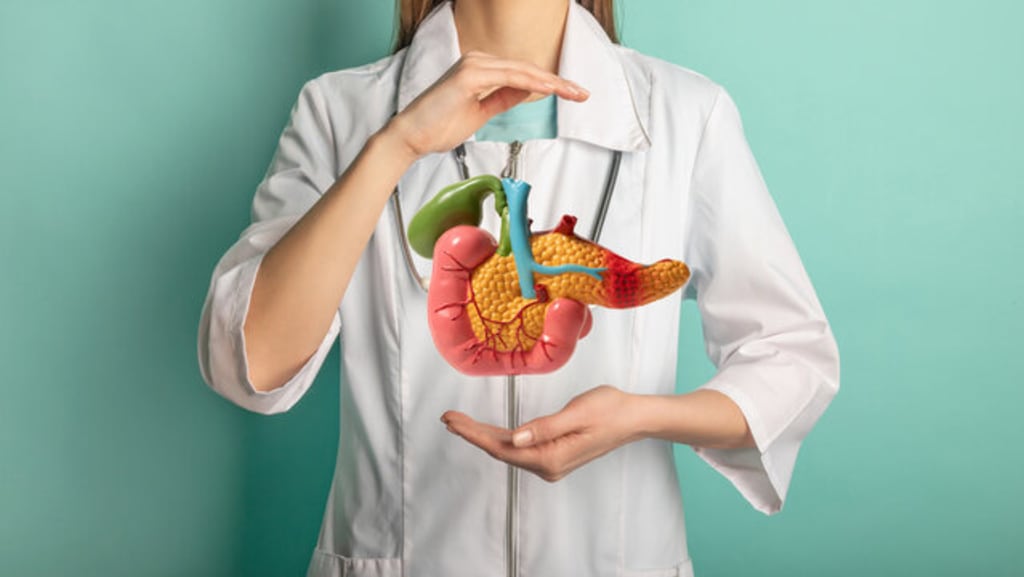What Are the First Signs of a Bad Gallbladder
Signs of a Bad Gallbladder

The gallbladder plays a crucial role in our digestive system, aiding in the breakdown of fats. However, when it malfunctions or develops issues, it can lead to discomfort and health complications. Understanding the signs of a bad gallbladder is essential for timely intervention and treatment. Let's delve into the initial symptoms that may indicate gallbladder problems.
1. Abdominal Pain and Discomfort
One of the primary signs of a problematic gallbladder is recurring abdominal pain. Typically, this discomfort manifests in the upper right portion of the abdomen, below the ribs. The pain might be intermittent or constant and can range from mild to severe. It often occurs after consuming fatty or heavy meals. Sometimes, the pain can radiate to the back or right shoulder blade.
2. Digestive Disturbances
A bad gallbladder can disrupt digestion, causing digestive issues like indigestion, bloating, gas, and feeling overly full even after consuming small meals. Some individuals may experience bouts of nausea or vomiting, particularly after eating greasy or fatty foods.
3. Changes in Stool Color and Consistency
When the gallbladder fails to release bile properly, it affects stool color and consistency. If you notice your stool becoming lighter in color, clay-colored, or greasy, it could signify a problem with your gallbladder. Additionally, persistent diarrhea or loose, watery stools may also be indicative of gallbladder issues.
4. Jaundice
In certain cases, a malfunctioning gallbladder can cause jaundice. This condition presents as yellowing of the skin and the whites of the eyes due to an excess buildup of bilirubin, a substance produced when the liver breaks down old red blood cells. Jaundice can signal a blockage in the bile ducts, possibly caused by gallstones or other gallbladder complications.
5. Unexplained Weight Changes
Unexpected and unexplained weight loss or gain can sometimes be linked to gallbladder problems. The digestive disturbances caused by a malfunctioning gallbladder might lead to changes in appetite or nutrient absorption, resulting in weight fluctuations.
6. Intolerance to Fatty Foods
Individuals with a compromised gallbladder might experience intolerance or increased sensitivity to fatty or greasy foods. Consumption of such foods can trigger abdominal pain, bloating, or other digestive discomfort.
7. Fever and Chills
In more severe cases where gallstones cause inflammation or infection, a person might experience fever and chills along with the abdominal discomfort. These symptoms indicate a more acute issue and require immediate medical attention.
8. Upper Back or Shoulder Pain
Pain that radiates to the back, specifically between the shoulder blades or in the right shoulder, could also be an early sign of gallbladder problems. This pain is often described as a dull ache and may intensify after meals.
Seeking Medical Advice
It's important to note that while these signs could point to gallbladder issues, they may also indicate other health problems. If you experience any of these symptoms persistently or if they worsen over time, consulting a healthcare professional is crucial for an accurate diagnosis and appropriate treatment.
Conclusion
Recognizing the first signs of a bad gallbladder is crucial for early detection and prompt treatment. Abdominal pain, digestive disturbances, changes in stool color, jaundice, weight changes, intolerance to fatty foods, fever, and back/shoulder pain are indicators that warrant medical attention. Prompt intervention can help manage gallbladder issues effectively, whether through lifestyle changes, medications, or, in severe cases, surgical intervention. Prioritizing your health and seeking timely medical advice can significantly improve your prognosis and overall well-being.
Understanding these initial signs can empower individuals to take proactive steps toward addressing potential gallbladder issues, promoting better digestive health and overall wellness. Regular health check-ups and maintaining a balanced diet can also aid in preventing gallbladder complications. Always consult a healthcare professional for proper diagnosis and gallbladder stone treatment tailored to your specific condition.
About the Creator
Same Andesron
I'm a passionate writer who finds joy and fulfillment in exploring a multitude of niches through my words. Writing isn't just my profession; it's my chosen craft and beloved hobby.






Comments
There are no comments for this story
Be the first to respond and start the conversation.